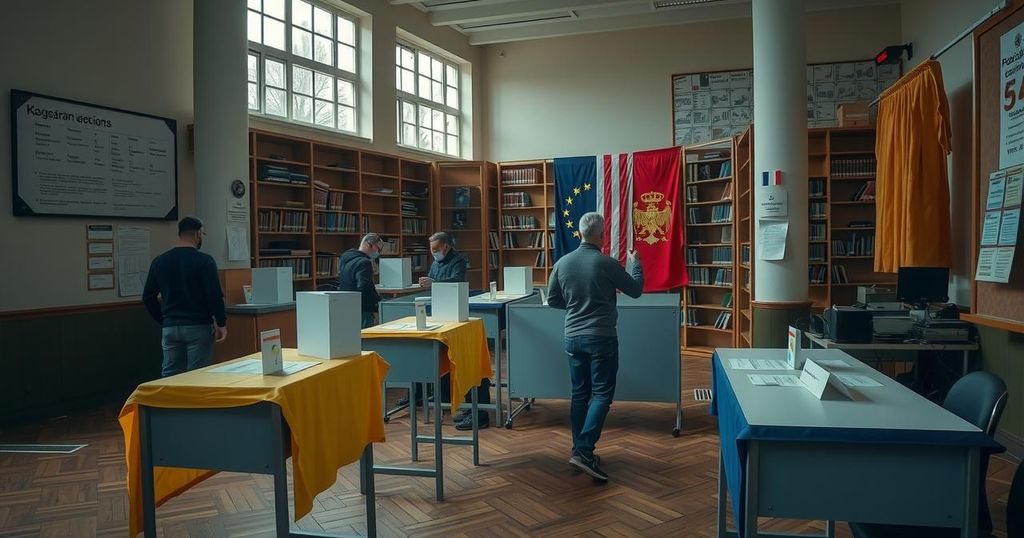Romania Votes in Crucial Parliamentary Elections Amid Political Turmoil

Romania is conducting parliamentary elections amidst allegations of electoral fraud and foreign interference. The far-right Alliance for the Union of Romanians (AUR) is predicted to gain significantly against the ruling Social Democratic Party (PSD), following the surprising success of Călin Georgescu in the presidential vote. The elections are critical for Romania’s political future and its standing within Europe, especially amidst economic challenges.
Voters in Romania have commenced casting their ballots in parliamentary elections amidst concerns regarding potential Russian interference and previous allegations of electoral fraud. A week after a surprising first round in the presidential election, where far-right candidate Călin Georgescu emerged unexpectedly victorious, public sentiment is fraught with uncertainty. Far-right parties, particularly the nationalist Alliance for the Union of Romanians (AUR), are predicted to gain significantly, challenging the dominance of the ruling Social Democratic Party (PSD). This turmoil follows allegations of external interference in the presidential election, particularly related to social media manipulation and online voting influence.
Călin Georgescu’s recent political rise has led to protests and prompted calls for election recounts due to claims of illegal activity linked to the second-placed candidate. Political analysts suggest that the results of both the parliamentary and presidential elections could radically reshape Romania’s political dynamics, which historically have leaned towards moderate, pro-European policies. Observers note that the current economic challenges, including high inflation and poverty rates, may empower anti-establishment factions like AUR.
Despite the political chaos, those supporting the far-right have argued that the dissatisfaction with traditional parties has created an opportunity for change. The implications of this election are profound, affecting not only domestic policy but Romania’s role within the European Union and NATO as a strategic ally, especially regarding support for Ukraine. As voting continues, the outcome may signal a significant departure from Romania’s established political trajectory.
The parliamentary elections in Romania are taking place in the context of significant political upheaval following surprising results in the presidential elections. Călin Georgescu, an independent candidate with far-right leanings, garnered unexpected support, raising questions about the integrity of the electoral process amid allegations of foul play and foreign influence. This situation has provoked widespread public scrutiny and unrest, primarily due to lingering issues of political corruption and economic hardship in the country. The results of these elections could reshape Romania’s political landscape, challenging the long-standing dominance of traditional parties and potentially realigning the nation’s political orientation.
The parliamentary elections in Romania are pivotal, occurring during a period of significant political disruption. With evidence suggesting foreign interference and a pronounced shift towards far-right ideologies, the elections could profoundly alter Romania’s political future. Given the high stakes involved, the outcomes will be crucial for both internal governance and Romania’s position within the EU and NATO. As citizens navigate this uncertain electoral atmosphere, the implications of their choices will resonate well beyond the parliamentary framework.
Original Source: www.theguardian.com








